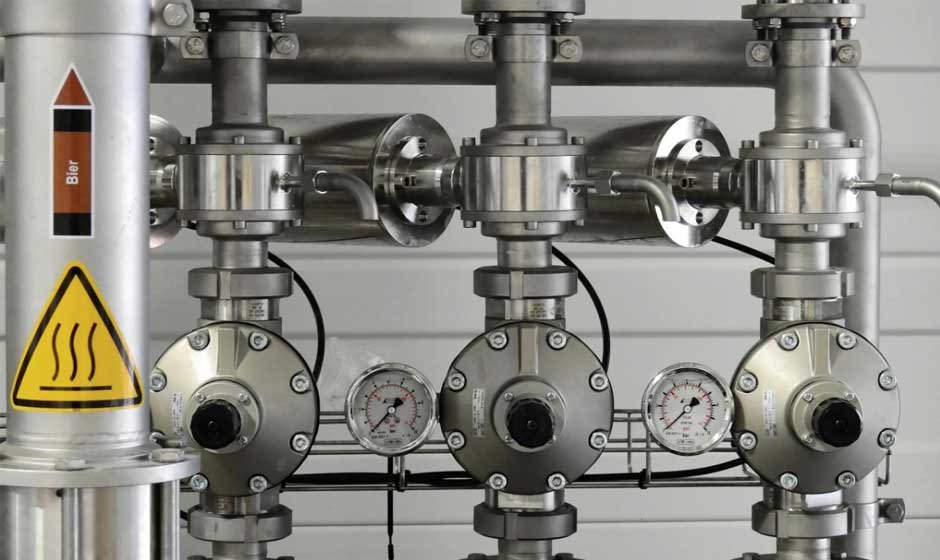Choosing the right pipe manufacturer is a decision that influences not only the longevity and reliability of infrastructure but also the efficiency of daily operations and long-term maintenance. Pipes play a foundational role in everything from municipal water systems to industrial applications and large-scale construction. With countless manufacturers in the market, selecting one demands attention to several critical aspects that go beyond price or proximity. Quality, technical knowledge, customer service, and material standards all come into play. This guide outlines six key areas to explore when evaluating a potential manufacturing partner.
Technical Expertise and Industry Knowledge
Manufacturers with a strong foundation in engineering and material science often bring consistency, accuracy, and problem-solving skills to their work. Their depth of knowledge can guide decision-making across projects of varying scale and complexity. When reviewing a company’s track record, look for signs of their involvement in diverse industries—oil and gas, waterworks, chemical processing, and agriculture, among others. This diversity often reflects an ability to adapt and innovate. When evaluating a manufacturer’s qualifications, it’s helpful to learn about HDPE specs and how the company incorporates them into its products. A manufacturer that understands the unique demands of high-density polyethylene—its flexibility, durability, and chemical resistance—will likely deliver solutions that hold up under pressure and time. The application of technical expertise should be evident in product design, manufacturing tolerances, and the ability to offer custom solutions when needed.
Material Quality and Certification Standards
Pipes are often expected to perform in harsh conditions: underground, underwater, or within corrosive systems. The choice of materials directly affects their ability to do so. Look for manufacturers that maintain rigorous control over the quality of their raw inputs, whether dealing with metals, PVC, HDPE, PEX, or composite materials. Third-party certifications—such as ISO, ASTM, or NSF—demonstrate that products meet industry standards and have passed consistent inspection.
Material integrity also impacts joint performance, resistance to thermal expansion, and tolerance to environmental changes. Ask about testing protocols: do they conduct pressure tests, UV resistance analysis, or chemical compatibility checks? High-caliber manufacturers invest in testing not just as a formality, but as part of a commitment to reliability and safety.
Production Capabilities and Scalability
A manufacturer may produce high-quality pipes on a small scale but struggle with larger orders or specialty products. That’s where production capacity becomes relevant. The scale of the facility, the speed of production lines, and the flexibility of tooling setups all affect how well a manufacturer can respond to varying project requirements.
For growing businesses or public infrastructure projects, scalability can determine timelines. It’s helpful to know whether a manufacturer can handle sudden increases in demand without compromising quality. This includes having contingency plans for material sourcing and equipment maintenance, especially during peak demand periods.
Customization options—such as pipe diameters, wall thicknesses, and coatings—also signal production maturity. The ability to tailor production to unique project specifications indicates both technical adaptability and a well-managed supply chain.
Lead Times and Delivery Performance

Timelines in construction and infrastructure projects are rarely forgiving. Delays in pipe delivery can stall other phases of work, causing ripple effects across labor, equipment rentals, and inspections. A pipe manufacturer’s delivery performance can make or break a schedule.
Check the company’s record with on-time deliveries and whether they offer transparent tracking of orders. Manufacturers who work closely with logistics partners and maintain warehouse networks near major job sites tend to reduce the risk of delay. It’s not only about speed, but consistency in delivery quality matters too. Pipes arriving damaged or incomplete can be just as disruptive as pipes that arrive late.
Communication plays a major role here. Are delivery timelines shared clearly at the time of order? Are updates provided proactively in case of changes? These details often reveal a manufacturer’s operational maturity and reliability.
Customer Support and Technical Assistance
Pipes are complex components in larger systems, and it’s not uncommon to need assistance in installation, troubleshooting, or regulatory compliance. Manufacturers that invest in technical support often bring added value to the relationship. This could include field engineers, installation training, or remote support for on-site teams.
Look for signs of proactive service—how responsive is the team during the bidding process? Do they follow up post-delivery to assess satisfaction or identify potential issues? A manufacturer’s willingness to stand behind their product goes beyond warranties. It’s about partnership and a shared interest in project success.
Documentation is another part of good support. Well-organized product datasheets, installation guides, and safety materials make the difference when deadlines are tight and decisions must be made quickly.
Selecting the right pipe manufacturer involves far more than choosing from a catalog. It’s a process that weighs technical expertise, material quality, scalability, logistics, customer support, and track record. Whether the need is municipal, industrial, or commercial, the right manufacturing partner serves not only as a supplier but as a critical contributor to the infrastructure’s success.










